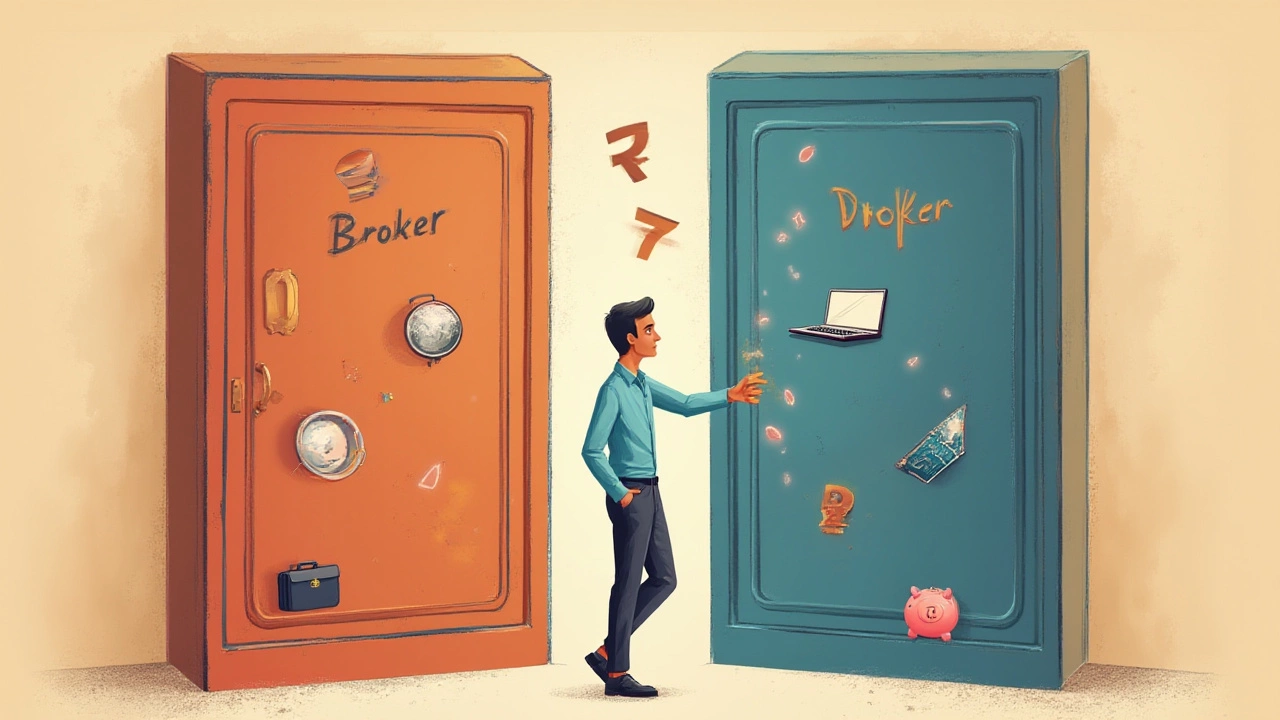You probably know someone who swears by their real estate broker—and someone else who regrets paying thousands for services they feel they barely used. It’s a wild world out there. Every time property deals pop up, the question floats around: is it really worth the price tag that brokers carry? You might be surprised; sometimes, paying for a broker saves sanity (and cash), but other times, it’s like buying a ticket for a ride you never wanted.
What Do Brokers Actually Do?
Think brokers just unlock doors and nod a lot? There’s a bit more going on beneath the surface, even if it’s not always obvious. In cities with insane property churn or hidden neighbourhood charm, having a broker feels a little like having an inside man. They know what’s about to be listed and sometimes swing deals before For Sale signs even go up. Less waiting, more options, less chance you lose out because you weren’t online at the right second.
But here’s the thing—brokers don’t just match you with listings. They’re interpreters for paperwork that seems like it was written for lawyers by bored lawyers, negotiators with nerves of steel, and sometimes, they’re part-time therapists if you find yourself freaking out about missed deadlines or sinkhole-prone basements. Good brokers spot problems before you buy or rent, like noisy neighbours or legal tangles. Some even know tricks to drive down a property’s final cost, steering you clear of overpaying for your future home or office space.
Still, there are brokers and then there are “brokers.” Some will flood your inbox with listings you already found yourself on property websites, then chase you for a commission check. The reliable ones? They’ll break down every fee, advise on current market rates, and give you the real story on what that property’s worth. People talk about ‘brokers’ like they’re all the same. Don’t buy it. The difference can be as extreme as between a well-trained Alsatian like Rocky (my loyal sidekick) and the neighbour’s chihuahua that only barks at clouds. Guess which one you’d rather help you find a dream home?
So, when brokers are good, you barely notice the hassle. When they’re bad, it’s an extra obstacle to sidestep while your dream property slips away.
The Real Cost: Fees, Commissions, and What You Get
Let’s talk money—because broker commissions are not small change. In India, a typical broker might pocket 1-2% of the transaction value for a buy, and 15 days to a month’s rent for a lease. Picture shelling out ₹2 lakhs on a ₹1 crore flat, just for the privilege of paperwork and phone calls. In the US and UK, that number slithers up to 5-6% on the seller’s side—ouch. That alone is enough to make people pause before calling up an agent.
But not all fees are created equal. Sometimes, what you spend on a broker saves you from ruin. A friend once tried buying a plot on the city’s edge without professional help. One hiccup with property titles later, and he was locked in a legal mess that lasted a year. A seasoned broker would have seen red flags and run interference with the registry office before money left his account. That ₹1-2 lakhs starts to look different when compared to years of courtrooms and lawyer fees.
Still, paying blindly for any broker is throwing cash at a dartboard, hoping you hit the right spot. Transparency is king: always ask to see the full breakdown of what you’re being charged for and if the figure is negotiable (spoiler: it usually is, but only if you ask and stand your ground). Top-notch brokers tend to pay for themselves. You want someone connected who will dig up hidden listings (like a truffle hog sniffing out mushrooms), hustle for your interests, spot overpriced flats, and not ghost you after the deal closes.
Relying on reviews or neighbourly recommendations gives a way better picture than fancy business cards. And if you’re hunting rentals instead of buying, extra caution is smart. Some renters lose money to "fly-by-night" brokers who vanish over the horizon once the deposit hits their account. Get a written agreement, always.

When a Broker Makes Sense—and When To Go Solo
Certain situations scream: get a broker, now! If you’re moving to a new city, have zero time, or want something ultra-specific (say, pet-friendly apartments with a big yard—I totally get this, Rocky insists on a good lawn), brokers cut the search from months to weeks. They dig up properties you’d never find, handle showings, and filter out obvious misses. When you need a swift, clean deal, their expertise smooths over legal, loan-related, or negotiation hiccups. Markets move fast, and brokers hustle connections to keep you ahead of the pack.
But hey, what if you’re experienced, know the area, have lots of free time, and prefer doing your own research? Go solo. Tons of peer-to-peer sites and online portals list properties directly from owners. You’ll dodge the big fees and can move at your own pace. Just be realistic about the effort involved—you’ll need to read all the fine print, set up site visits, do your own price research, and coordinate every single step. Miss a deadline or misjudge legal documents, and the cost can be worse than a broker’s fee. That’s especially true for property auctions, resale flats with unclear titles, or land purchases in less transparent regions.
If it’s your first time or you’re juggling complex needs (school zones, investment property rules, or upcoming infrastructure changes that might send prices soaring), that’s broker territory. Just remember, you’re hiring them to save you time, stress, and possibly money via better deals or safer transactions. Always check their license, too: In India, government-recognized RERA registration separates real players from scam artists.
Tips for Choosing—and Using—A Broker Smartly
If you’ve decided to spend for expertise, make it count. Here’s how to make sure you’re not just ‘another commission’. First, research. Look up agents on RERA websites, check client feedback, and ask for references—anyone reputable will happily provide them. Never pay a full fee upfront, and never trust brokers who promise “guaranteed returns” or urge you to rush a deposit. Slow down and double-check credentials.
- Ask about their recent deals—how fast, how many, and what prices.
- Request the breakdown of fees and tasks. If it feels vague, walk away.
- Negotiate the commission. It’s not offensive—it’s expected.
- Insist on a written agreement covering every service, payment terms, and what happens if the deal falls through.
- Stay involved; don’t leave it all to your broker. Visit properties, talk directly to owners if possible, and review legal papers yourself.
Timing can also matter—peak summer and festive months often mean higher prices. Brokers may be able to snag deals during quieter periods. Smart agents keep you posted on off-market properties and new launches, sometimes letting you in early for better prices and choices.
If you click with your broker and they pull through, keep their number handy. Property deals may not come often, but trusted contacts are gold long-term.

Broker Alternatives: Can Tech or DIY Close the Gap?
Platforms are popping up promising seamless, broker-free buying or renting. Sounds cheap, but how well do they work? Owner-to-owner sites (like 99acres, NoBroker, or Magicbricks in India) line up hundreds of listings, skipping agents entirely. But you have to do all the steering—no one’s screening owners, chasing documents, or reminding you about legal checks.
Some cities are experimenting with AI matchmakers for real estate—apps that suggest properties based on your browsing, location, and even decor preferences. Don’t expect an app to catch missing signatures or check if a project is stuck in litigation, though. Hybrid platforms offer a middle road: online listings with live help from independent agents. You might pay less in fees, but you’ll need to read the small print.
A genuine cost-saving tip from the trenches: If you find a property through a broker but want to haggle, sometimes showing you’ve done your homework (comparable deals, recent sale prices) opens the door to shave down both the deal price and the broker fees. As a bonus, organized buyers are brokers’ favourites—they’ll hustle harder if they think you’ll close the deal fast.
- Automate your search alerts. New listings move quickly.
- Double-check every document—even experienced brokers miss things.
- Ask owners about issues a broker might gloss over (noisy neighbourhoods, leaks, past disputes).
- Don’t skip property registration and legal due diligence, even if things “seem right”.
Some final advice from someone who’s seen friends, family, and colleagues go through this dance: If you’re plunging in for the first time, the learning curve is sharp. A solid broker turns a minefield into a semi-smooth path. But pay attention, trust your gut, and don’t give up control of the wheel—nobody cares about your dream flat (or your wallet) as much as you do. And wherever you land, remember, even Rocky needed a good trainer… not just random advice from the park.





